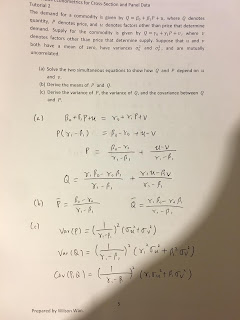Crimes and Interest Rate (Part 1)
Empirical findings show that crime rate and interest rate are positively related. In other words, when interest rate is higher, crime rate will also be higher. These two variables seem unrelated, this phenomenon, however, can be explained by economics.
Interest rate as a discount factor
“One dollar today worth more than one dollar tomorrow”. This sentence is right given a positive interest rate. If you have one dollar, you can invest and get back one plus the interest tomorrow. The higher the interest rate, the more you get, and the more valuable the one dollar today.
With the similar manner, what if you owe your friend one dollar? Should you repay it today or tomorrow? The answer is clear, you should postpone your repayment as you can get more interest if you postpone. The higher the interest rate, the less you have to repay.
Therefore, the existence interest rate adds value for today’s benefits and diluting future costs. The higher the interest rate, the more “impatient” the people are.
Crimes as an impatient act
When a person committ crimes, he/she gets the present enjoyment. For example, burglary and robbery let you get certain amount of money to spend now; assault allows you express anger to those you hate; rape… well….
Of course, after you get the enjoyment, you have to pay the cost. Yet, punishment will be made in the future. Since interest rate is a discount factor, your real cost will be lower when the interest rate is higher.
In part 2, we will dig into data to see whether higher interest rate leads to higher crime rate. A story will become a theory if it is verified by data.
